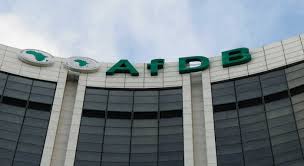The African Development Bank (AfDB) has raised concerns over Nigeria’s ability to achieve sustainable development despite recent bold policy reforms, citing persistent governance failures and institutional weaknesses as major roadblocks.
The warning was contained in the 2025 Nigeria Country Focus Report titled “Making Nigeria’s Capital Work Better for Its Development,” which was launched on Thursday in Abuja. The report paints a sobering picture of the country’s current development finance landscape, revealing how ineffective governance structures are hampering efforts to mobilise and utilise domestic resources effectively.
According to the report, Nigeria is facing an annual development finance gap of $31.5 billion, which it must close if it hopes to meet its Sustainable Development Goals (SDGs) by 2030. Although the country has introduced wide-ranging reforms, including fuel subsidy removal, tax restructuring, and foreign exchange unification, the AfDB cautioned that without institutional reform, these measures may not achieve the desired impact.
“Governance and institutional shortfalls further complicate the domestic resource mobilisation landscape,” the report said. “Fragmented regulatory oversight, overlapping jurisdictions, and pervasive corruption have eroded public trust and discouraged both domestic and foreign investment.”
The report also highlighted inefficiencies in public finance administration, low tax compliance, and the dominance of the informal economy as key factors behind Nigeria’s weak tax-to-GDP ratio, which currently stands at around 13%—one of the lowest in Sub-Saharan Africa.
AfDB said solving these issues would require an overhaul of administrative processes, stronger anti-corruption mechanisms, the deployment of digital infrastructure, and the enforcement of rule of law across all levels of government.
The Bank further revealed that Nigeria’s natural capital—such as forests, land, and renewable resources—makes up over 37% of its total wealth but is being depleted at an alarming rate. Since 1999, per capita natural capital has declined by 2.1% annually, with little to no replacement or regeneration efforts.
In the area of human capital, the country also fared poorly. Nigeria’s Human Capital Index remains low at 36%, reflecting weak investment in education and health. Federal allocations to education and health in the 2024 national budget were 7.9% and 5.3%, respectively—far below the international benchmarks needed to support productivity growth and social equity.
The AfDB urged Nigeria to prioritise public investment in health and education, update curricula to meet modern market demands, and expand technical and vocational training to improve the country’s long-term productivity.
On the fiscal front, the report recommended innovative financing tools such as diaspora bonds, blended finance, and green bonds to bridge the development financing gap. It also noted that Nigeria’s emerging carbon market could potentially generate $2 billion in revenue if properly developed and governed.
Despite the challenges, the report projects that Nigeria’s real GDP growth will moderate to 3.2% in 2025 and 3.1% in 2026, slightly down from 3.4% in 2024, largely due to structural constraints and ongoing global economic uncertainties.
At the launch event, the Director General for Nigeria at AfDB, Dr Abdul Kamara, described the report as both timely and practical. “Nigeria is showing courage through tough but necessary reforms. However, capital must be seen beyond finances. It includes human, natural, and institutional resources. These must work together for inclusive and sustainable development,” Kamara said.
The report was officially unveiled on behalf of the Federal Government by Mr Olufemi Olarinde, Head of Fiscal and Tax Reforms Implementation Division at the Federal Inland Revenue Service (FIRS). He acknowledged the relevance of the report, stating, “It accurately captures both the strides we are making and the challenges we face as we strengthen Nigeria’s public finance system.”
Also speaking at the event, Dr Jacob Oduor, AfDB’s Lead Economist for West Africa, stressed that policy tools such as market-driven exchange rate systems can support resilience only when backed by credible institutions.
In his remarks, Peter Rasmussen, Country Economist for Nigeria at AfDB, said, “Nigeria’s commitment to fiscal reform is key. Strengthening non-oil revenue and public finance systems will reduce reliance on volatile oil markets and create the fiscal space needed to invest in infrastructure and human capital.”
The report also echoed concerns raised by private sector players. Dr Joseph Ogebe, Head of Research and Development at the Nigeria Economic Summit Group (NESG), said, “Price stability is still a big issue. Inflation continues to harm small businesses the most. We support a productivity-led deflation strategy and recommend a growth model that goes beyond borrowing.”
The 2025 Nigeria Country Focus Report is part of the AfDB’s annual country-level analysis, produced in line with the African Economic Outlook. It is intended to inform reform planning, support policy dialogue, and provide evidence-based recommendations for national development.
